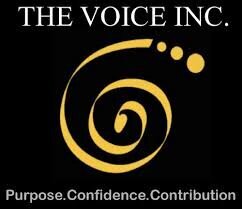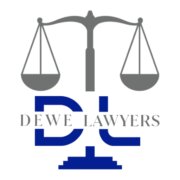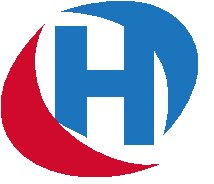Best FDA Law Lawyers in Port Moresby
Share your needs with us, get contacted by law firms.
Free. Takes 2 min.
List of the best lawyers in Port Moresby, Papua New Guinea
About FDA Law in Port Moresby, Papua New Guinea
FDA Law in Port Moresby, Papua New Guinea, generally refers to legal regulations concerning food, drugs, cosmetics, and medical devices. The regulatory framework is designed to protect public health and safety through the oversight of product quality, safety standards, and proper labeling. The National Department of Health is the main authority overseeing these laws while port authorities play a critical role in monitoring imports. Businesses and individuals involved in the manufacturing, importation, or distribution of regulated products need to comply with strict standards to operate legally within Papua New Guinea.
Why You May Need a Lawyer
Engaging a lawyer with FDA Law experience is important in several common scenarios:
- Registering a new food, drug, or medical device product for sale in Papua New Guinea.
- Understanding regulatory compliance for manufacturing or processing facilities.
- Defending against allegations of mislabeling, adulteration, or violation of import regulations.
- Advising on recalls or product withdrawals that may be required by health authorities.
- Negotiating with regulatory bodies for licenses, permits, or resolving audit findings.
- Interpreting updates or amendments to FDA-related legislation or statutory instruments.
Local Laws Overview
Papua New Guinea’s legal system regulates food and drug safety through several acts and codes. Key pieces of legislation include the Food Sanitation Act, the Medicines and Cosmetics Act, and import-export regulations under the oversight of the National Department of Health’s Pharmaceutical Services Standards Branch. Important legal requirements are:
- Registration of pharmaceuticals, medical devices, and many food products before distribution.
- Permit requirements for importing controlled or regulated substances.
- Mandatory labeling, including expiry dates, batch numbers, and ingredient information in English.
- Periodic inspections and audits of manufacturing, processing, or storage facilities.
- Penalties for noncompliance, ranging from fines to confiscation or revocation of licenses.
- Pathways for appealing regulatory decisions through legal counsel.
Because products enter Port Moresby from around the world, customs authorities frequently coordinate with health officials to ensure compliance at entry points.
Frequently Asked Questions
What is considered a regulated product under Papua New Guinea’s FDA Law?
Regulated products include foods, beverages, drugs, cosmetics, medical devices, vitamins, and health supplements, among others.
Which government body enforces FDA Law in Port Moresby?
The National Department of Health, primarily through its Pharmaceutical Services Standards Branch, is responsible for enforcement.
Do I need to register my product before selling it in Port Moresby?
Yes, most regulated products must be registered and approved by the relevant authority before they can be legally marketed in Papua New Guinea.
What are the labeling requirements for FDA-regulated products?
Product labels must include the product name, list of ingredients, batch number, expiry date, manufacturer’s details, and directions for use, all in English.
Are there any import restrictions on drugs or food products?
Yes, there are restrictions and permit requirements for many drugs, medical devices, and foods, especially those containing certain substances or novel ingredients.
What happens if I do not comply with FDA regulations?
Noncompliance can result in confiscation of goods, significant fines, cancellation of licenses, and legal proceedings.
How can I find out if my product needs special approval?
Contact the National Department of Health or consult a legal expert specializing in FDA Law to determine if your product requires special registration or approval.
Can decisions by the health authorities be appealed?
Yes, there are legal pathways to appeal regulatory decisions. A lawyer can advise on the process and help prepare the necessary documentation.
Do local FDA laws apply to products made locally and imported products?
Yes, both imported and locally produced products are subject to the same standards and regulatory requirements.
What should I do if my product is recalled?
Immediately comply with recall orders, withdraw the product from the market, and seek legal advice to manage compliance, public communications, and any associated liability.
Additional Resources
The following organizations and bodies can provide information or support regarding FDA Law in Port Moresby:
- National Department of Health, Pharmaceutical Services Standards Branch
- Customs Department - import regulations and clearance
- Port Moresby Chamber of Commerce and Industry - guidance for businesses
- Papua New Guinea Food Sanitation and Control Board
- Consumer Council of Papua New Guinea
For official forms and up-to-date guidance, the National Department of Health is the primary source.
Next Steps
If you believe you need legal assistance regarding FDA Law in Port Moresby, consider the following approach:
- Identify the nature of your issue - whether it’s related to product registration, labeling, import-export, or compliance investigations.
- Gather all relevant documentation, including product details and correspondences with authorities.
- Reach out to a legal professional with experience in regulatory, food, and drug law in Papua New Guinea.
- Schedule a consultation to discuss your specific situation and get guidance on compliance or defense strategies.
- Stay updated on changing regulatory requirements by monitoring official bulletins from the National Department of Health.
- Consider consulting multiple professionals to ensure you have a clear understanding of your legal obligations and options.
Promptly addressing compliance and legal issues is crucial to safeguarding your business and ensuring the safety of consumers in Papua New Guinea.
Lawzana helps you find the best lawyers and law firms in Port Moresby through a curated and pre-screened list of qualified legal professionals. Our platform offers rankings and detailed profiles of attorneys and law firms, allowing you to compare based on practice areas, including FDA Law, experience, and client feedback.
Each profile includes a description of the firm's areas of practice, client reviews, team members and partners, year of establishment, spoken languages, office locations, contact information, social media presence, and any published articles or resources. Most firms on our platform speak English and are experienced in both local and international legal matters.
Get a quote from top-rated law firms in Port Moresby, Papua New Guinea — quickly, securely, and without unnecessary hassle.
Disclaimer:
The information provided on this page is for general informational purposes only and does not constitute legal advice. While we strive to ensure the accuracy and relevance of the content, legal information may change over time, and interpretations of the law can vary. You should always consult with a qualified legal professional for advice specific to your situation.
We disclaim all liability for actions taken or not taken based on the content of this page. If you believe any information is incorrect or outdated, please contact us, and we will review and update it where appropriate.
















